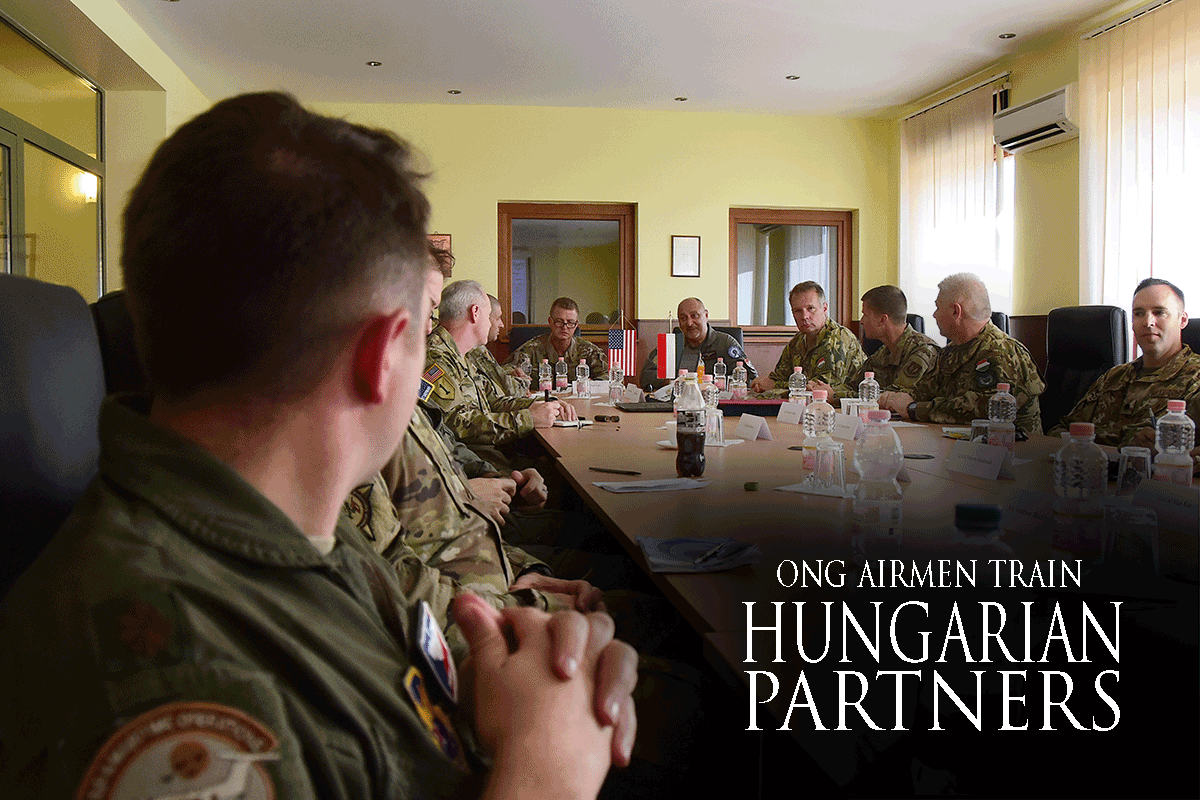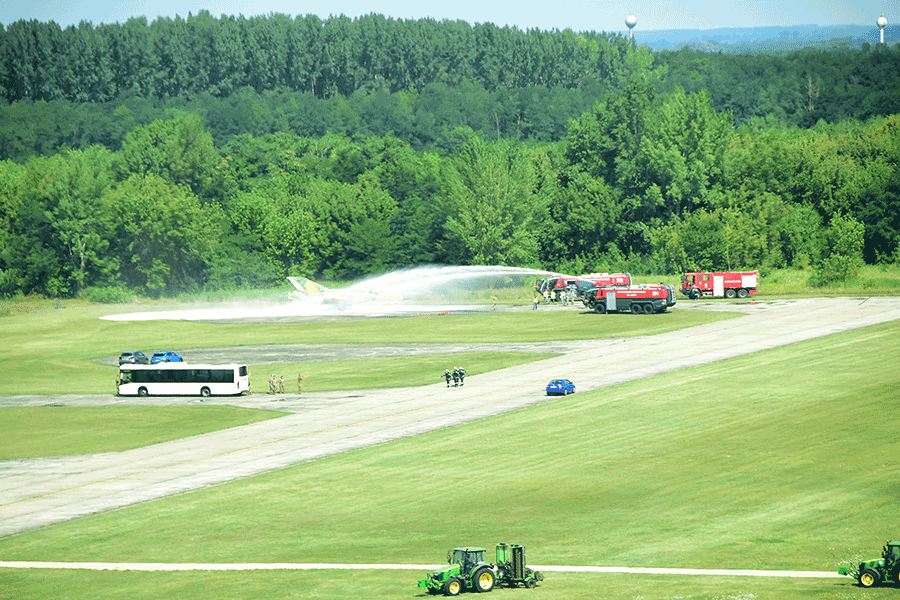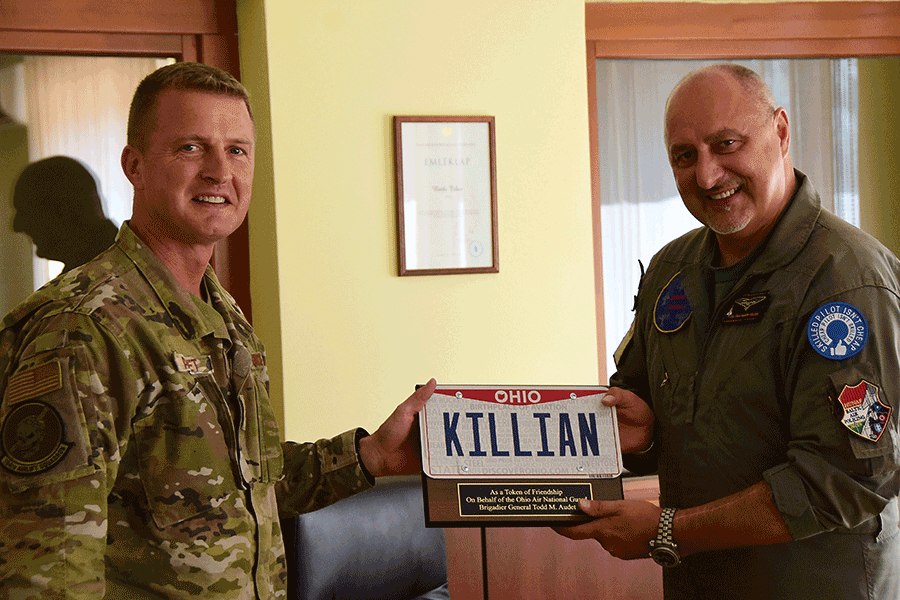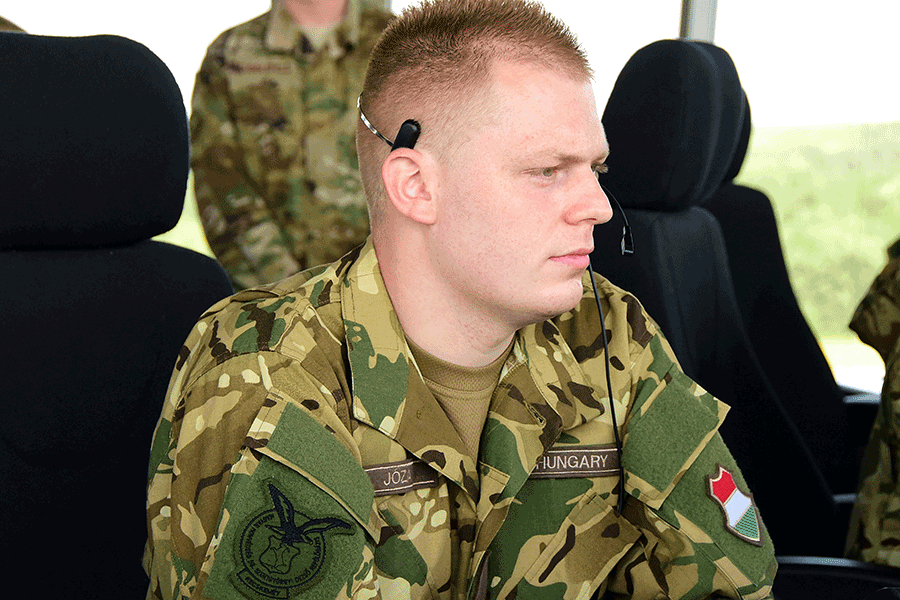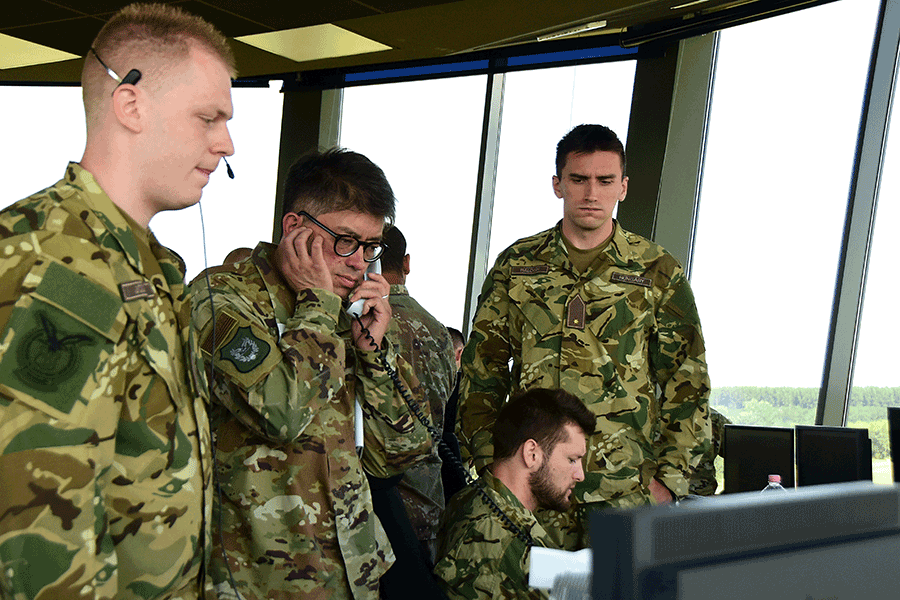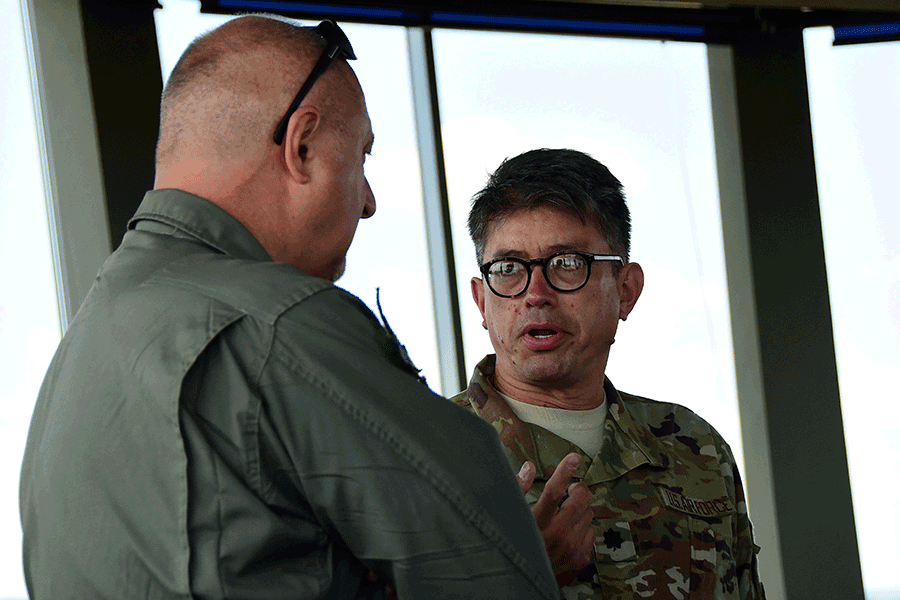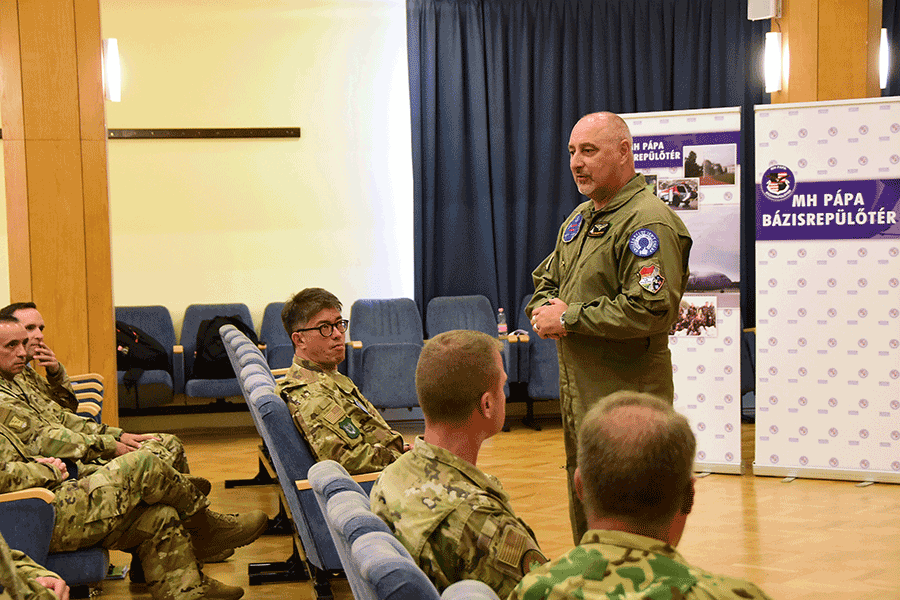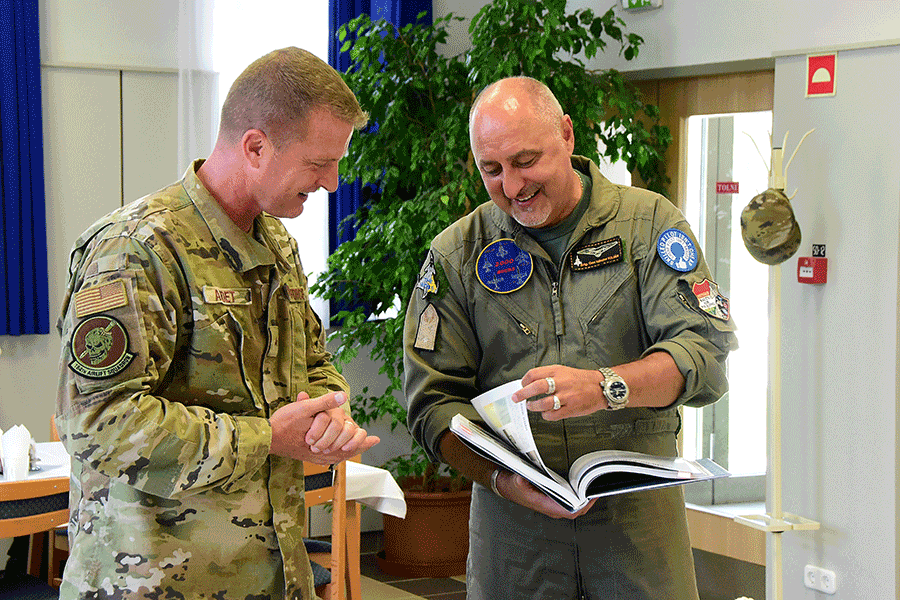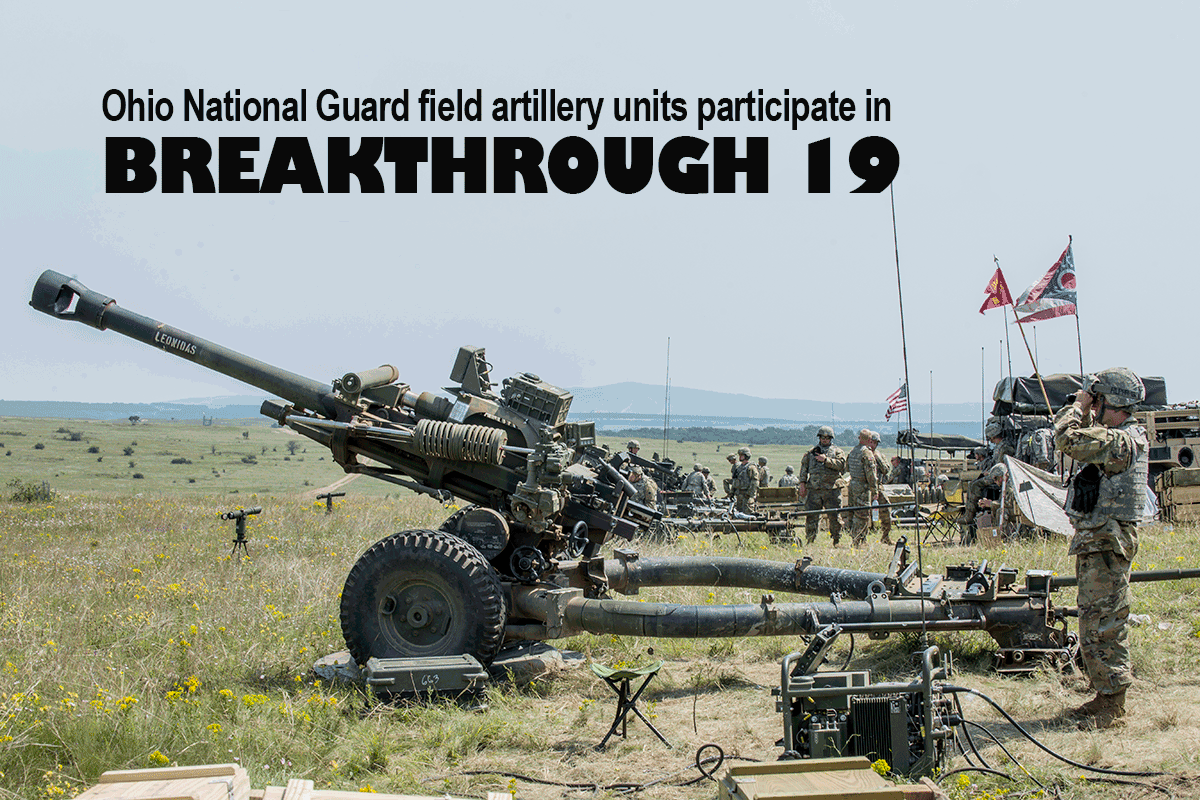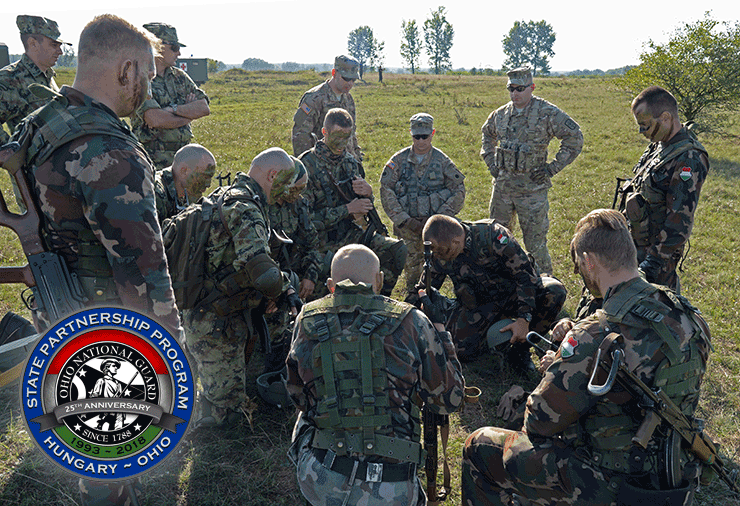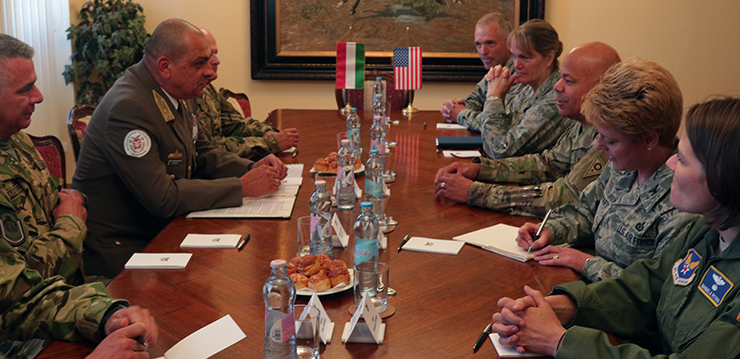Ohio National Guard Airmen train Hungarian partners on airfield management
Story by Senior Airman Amber Mullen, Ohio National Guard Public Affairs
PÁPA AIR BASE, Hungary (08/28/19)
Eight Airmen assigned to an Ohio National Guard mobile training team conducted an intermediate airfield management course for members of the Hungarian Defence Forces here, July 29-Aug. 2.
National Guard members taught the course alongside air advisers from Ramstein Air Base in Germany. The Ohio National Guard conducts regular engagements focused on sharing best practices and learning from Hungary, its state partner for the last 26 years as part of the Department of Defense State Partnership Program.
“We taught various facets of managing the airfield to include parking plans for various types of aircraft and having a plan in place to run the airfield while maximizing safety,” said Tech Sgt. Andrew Lipian, an aviation resource manager assigned to the 164th Operations Squadron at the 179th Airlift Wing in Mansfield, Ohio. “We taught the hierarchy within the airfield management career field and we engaged in real-world exercises.”
During the training period, the Airmen also taught a familiarization course focused on flight line safety emergency procedures, cargo handling and air base occupational health.
This year’s course built on the foundation of the information presented last year during the beginner’s course, and is part of a three-course series focusing on joint training and sharing best practices.
“Ohio has been the state that has supported us in several areas,” said Brig. Gen. Nándor Kilián, the inspector of the Hungarian air force. “There is a lot of room to improve. The basic thing is to exchange the knowledge, exchange the possibilities and to learn from each other. This is the main goal, to cooperate.”
One aspect of the course was firefighting training, as the mobile team and air advisors trained Hungarian military members on firefighting techniques to improve flight line safety knowledge and skills. They also showcased how firefighters work closely with airfield management and air traffic controllers to improve the overall effectiveness of in-flight emergency response.
Another teaching point of the course was familiarization with occupational health. Ohio National Guard occupational health specialists assessed and provided insight on the Hungarian Defence Force’s current program. Based on their observations, they were able to teach medical triage and advise their partners on additional ways to treat their service members who are exposed to environmental hazards.
At the end of the training, the Hungarians and Ohioans participated in a joint demonstration to showcase how air traffic controllers, airfield management, firefighters and medics all work together in an emergency response situation.
Ohio is dedicated to continuing building and strengthening its 26-year partnership with Hungary. With an increasingly unstable global environment, this partnership increases strength in peacetime, which will improve Ohio-Hungary joint capabilities in times of conflict.
“This is a long-term relationship,” said Brig. Gen. Todd Audet, the Ohio deputy assistant adjutant general for Air. “The more we work together, the more our relationship with the Hungarians strengthens. As the Hungarian air force transforms, we’re right there alongside them, helping them in that transformation.”
Ohio’s partnership with Hungary provides mutually beneficial training, builds cultural understanding and showcases the accomplishments of two nations collaborating to achieve security cooperation goals. Through military exchanges like the airfield management course, both nations are able to learn from each other and improve their policies and procedures.
“A great way to learn is by teaching,” Audet said. “You learn what your partners know and you learn what you’re teaching even better by sharing the information. Both the Hungarians and the Ohio National Guard service members have benefited in that regard.”
Since 1993, Ohio and Hungary have developed a partnership and friendship that has allowed both nations to come together and work as a united force. This partnership has transcended military training alone and developed relationships that will prepare both entities’ forces for the future.
